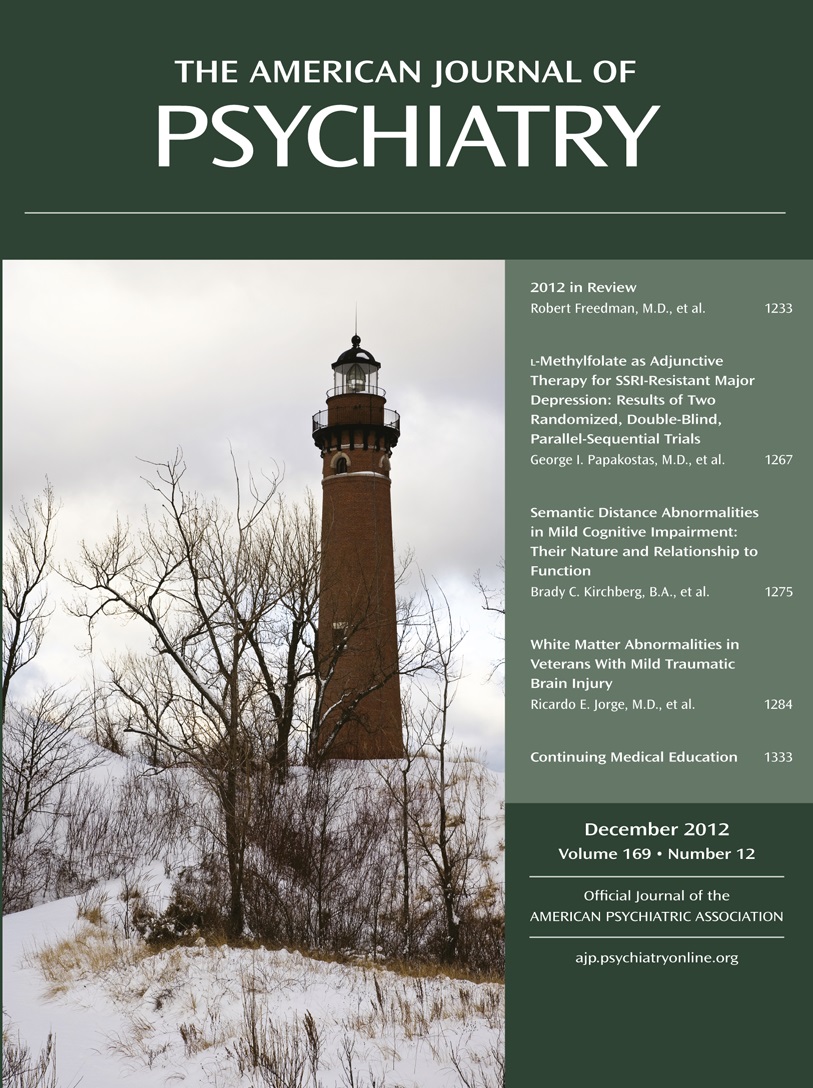Genome-Wide Association Study of Clinical Dimensions of Schizophrenia: Polygenic Effect on Disorganized Symptoms
Abstract
Objective
Multiple sources of evidence suggest that genetic factors influence variation in clinical features of schizophrenia. The authors present the first genome-wide association study (GWAS) of dimensional symptom scores among individuals with schizophrenia.
Method
Based on the Lifetime Dimensions of Psychosis Scale ratings of 2,454 case subjects of European ancestry from the Molecular Genetics of Schizophrenia (MGS) sample, three symptom factors (positive, negative/disorganized, and mood) were identified with exploratory factor analysis. Quantitative scores for each factor from a confirmatory factor analysis were analyzed for association with 696,491 single-nucleotide polymorphisms (SNPs) using linear regression, with correction for age, sex, clinical site, and ancestry. Polygenic score analysis was carried out to determine whether case and comparison subjects in 16 Psychiatric GWAS Consortium (PGC) schizophrenia samples (excluding MGS samples) differed in scores computed by weighting their genotypes by MGS association test results for each symptom factor.
Results
No genome-wide significant associations were observed between SNPs and factor scores. Most of the SNPs producing the strongest evidence for association were in or near genes involved in neurodevelopment, neuroprotection, or neurotransmission, including genes playing a role in Mendelian CNS diseases, but no statistically significant effect was observed for any defined gene pathway. Finally, polygenic scores based on MGS GWAS results for the negative/disorganized factor were significantly different between case and comparison subjects in the PGC data set; for MGS subjects, negative/disorganized factor scores were correlated with polygenic scores generated using case-control GWAS results from the other PGC samples.
Conclusions
The polygenic signal that has been observed in cross-sample analyses of schizophrenia GWAS data sets could be in part related to genetic effects on negative and disorganized symptoms (i.e., core features of chronic schizophrenia).



